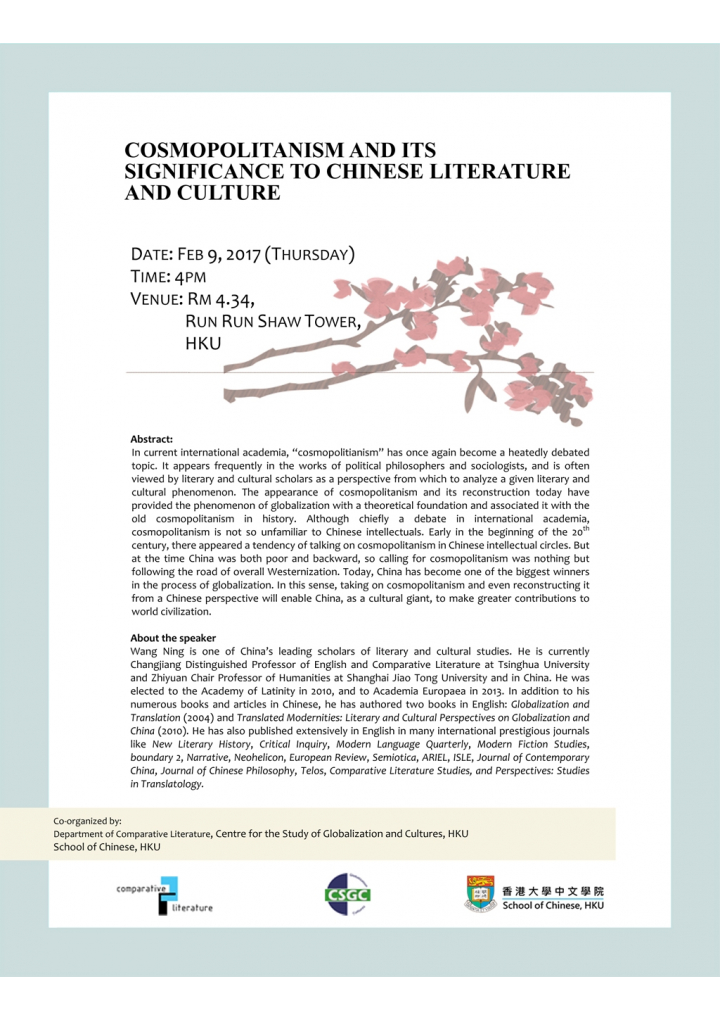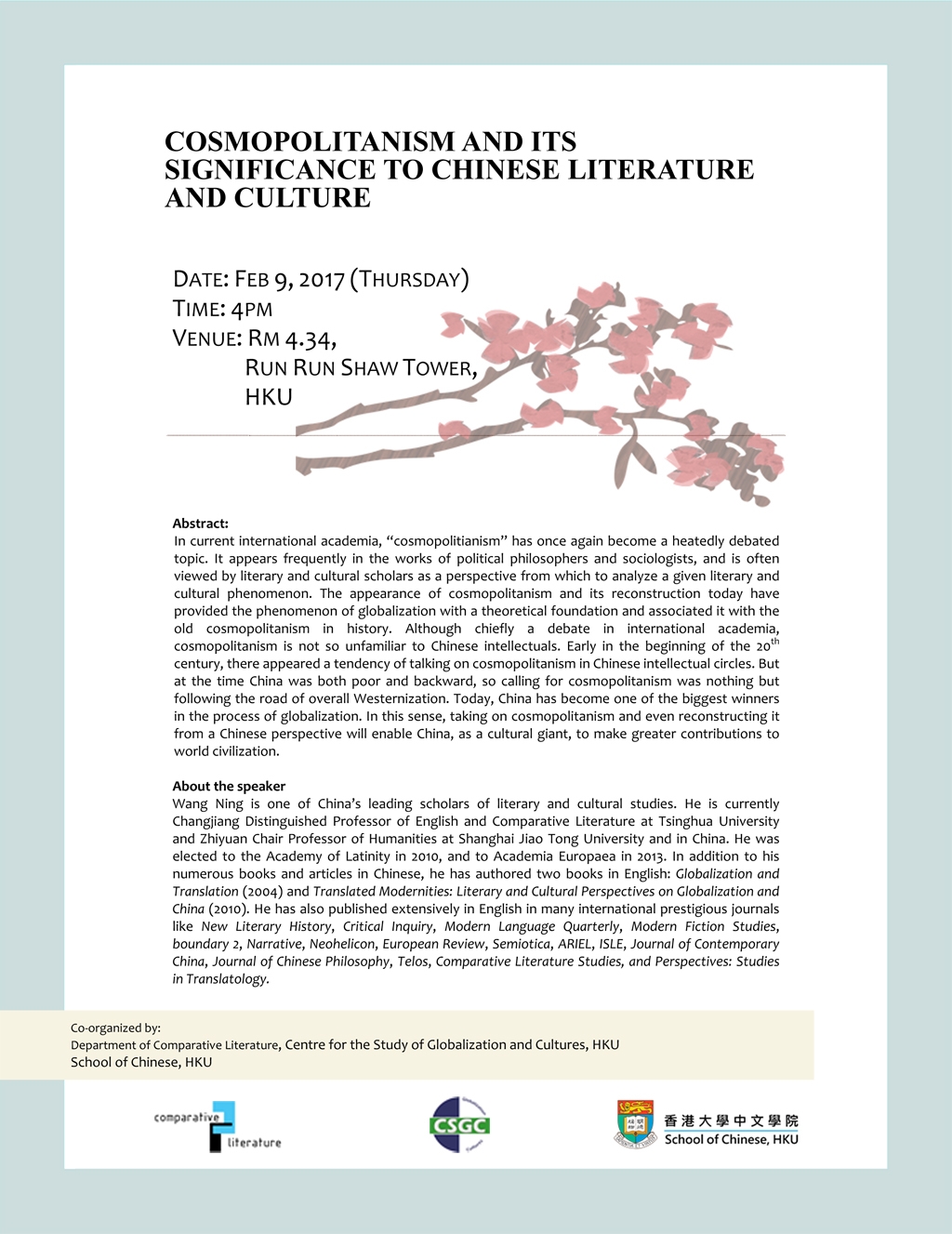COSMOPOLITANISM AND ITS SIGNIFICANCE TO CHINESE LITERATURE AND CULTURE

COSMOPOLITANISM AND ITS SIGNIFICANCE TO CHINESE LITERATURE AND CULTURE
DATE: FEB 9, 2017 (THURSDAY)
TIME: 4PM
VENUE: RM 4.34, RUN RUN SHAW TOWER, HKU
Abstract:
In current international academia, “cosmopolitianism” has once again become a heatedly debated topic. It appears frequently in the works of political philosophers and sociologists, and is often viewed by literary and cultural scholars as a perspective from which to analyze a given literary and cultural phenomenon. The appearance of cosmopolitanism and its reconstruction today have provided the phenomenon of globalization with a theoretical foundation and associated it with the old cosmopolitanism in history. Although chiefly a debate in international academia, cosmopolitanism is not so unfamiliar to Chinese intellectuals. Early in the beginning of the 20th century, there appeared a tendency of talking on cosmopolitanism in Chinese intellectual circles. But at the time China was both poor and backward, so calling for cosmopolitanism was nothing but following the road of overall Westernization. Today, China has become one of the biggest winners in the process of globalization. In this sense, taking on cosmopolitanism and even reconstructing it from a Chinese perspective will enable China, as a cultural giant, to make greater contributions to world civilization.
About the speaker
Wang Ning is one of China’s leading scholars of literary and cultural studies. He is currently Changjiang Distinguished Professor of English and Comparative Literature at Tsinghua University and Zhiyuan Chair Professor of Humanities at Shanghai Jiao Tong University and in China. He was elected to the Academy of Latinity in 2010, and to Academia Europaea in 2013. In addition to his numerous books and articles in Chinese, he has authored two books in English: Globalization and Translation (2004) and Translated Modernities: Literary and Cultural Perspectives on Globalization and China (2010). He has also published extensively in English in many international prestigious journals like New Literary History, Critical Inquiry, Modern Language Quarterly, Modern Fiction Studies, boundary 2, Narrative, Neohelicon, European Review, Semiotica, ARIEL, ISLE, Journal of Contemporary China, Journal of Chinese Philosophy, Telos, Comparative Literature Studies, and Perspectives: Studies in Translatology.
Co-organized by:
Department of Comparative Literature, Centre for the Study of Globalization and Cultures, HKU
School of Chinese, HKU









